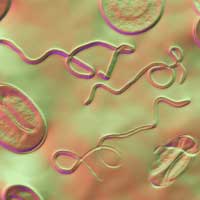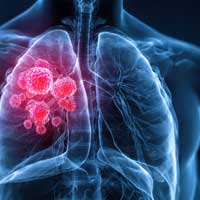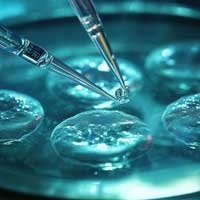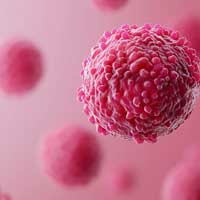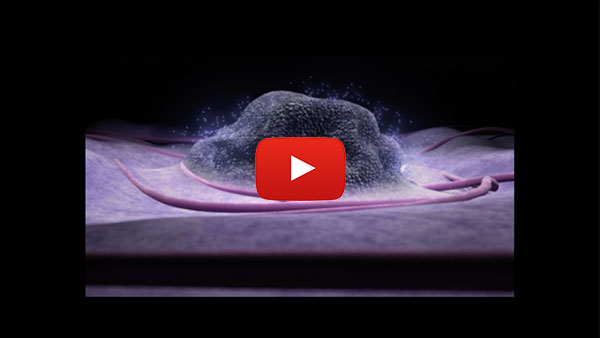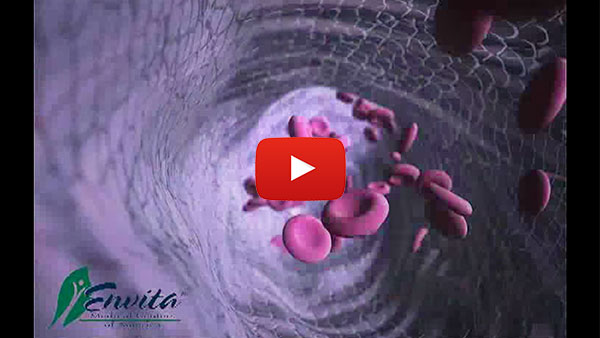Nutritional Intravenous Therapy - How it Works
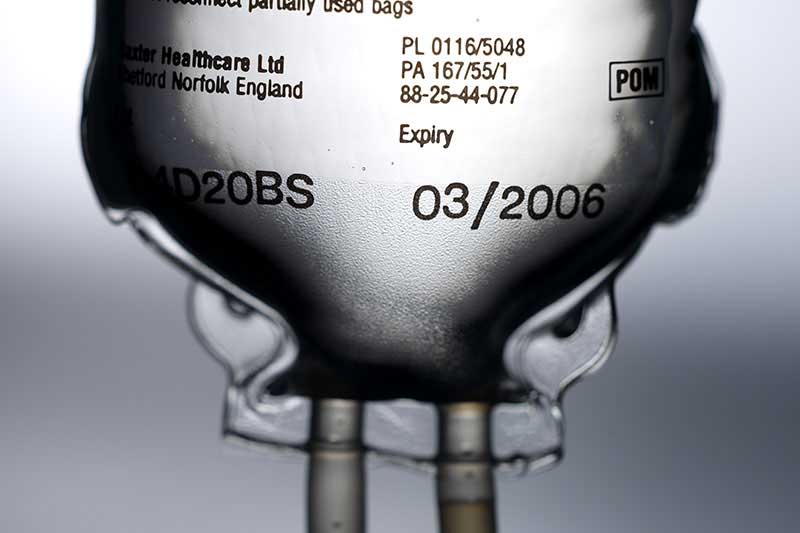
While largely ignored in conventional oncology for decades, intravenous nutritional therapy still plays a major key in recovering from and battling disease. But when you visit conventional doctors for any sort of treatment, they never address a patient's diet, besides shrugging and saying, "Eat better and get more exercise." What kind of vague, useless advice is that?
This poor mindset stems from medical schools where a physician may receive only 30 minutes of nutritional training in their biochemistry course. Then all training, including residency and fellowship is completely pharmaceutically focused. Only a select few take the time to be trained and mentor with integrative physicians that specialize in cancer treatment.
Nutrition is key in recovery, especially with cancer, because chemotherapy and radiation treatments suck the nutrients right out of you. This is why patients undergoing chemo look so ill – their bodies are literally starved of nutrition while simultaneously loaded with toxins and metabolic waste.
But every person has unique metabolic needs, meaning that telling a patient to open wide and then throwing some vitamins down their throat won't do the trick. Some people need more Vitamin C in their diet and others need less. Some people need more magnesium and others have iron deficiencies.
Even though oncology as a whole has ignored intravenous nutrition, fearing that nutrients will adversely impact chemotherapy or radiation, they really detour patients from these kinds of treatment. This is in spite of 280 peer-reviewed studies, including 50 human studies involving 8,521 patients that have emerged since the 1970's. 5081 subjects that were give nutrients have shown that these nutrients do not interfere with their therapeutic modalities for cancer. [1]
So what are you left with? The fact is, you need a complete, personalized nutritional profile if you really want an edge in fighting cancer. Let's explore what that means and how it can mean the difference in your survival and quality of life.
Nutrition, the Immune System and How Together They Fight Cancer
Briefly, let's review: cancer is mutated cells that are activated by either faulty genes, environmental toxins or infectious agents that cause mutations. The reason the body can have such trouble fighting cancer varies – in part, it has do with immunity and recovery of healthy cells. Poor nutrition leads to poor immune defense, which can allow cancer cells to thrive, spreading and creating a microenvironment that makes cancer cells resistant to treatment.
Now, the most commonly accepted forms of cancer treatment are chemotherapy and radiation therapy. These drugs seek out and destroy cancer cells, but they also damage healthy cells and drain the body of essential nutrients and critically diminish immunity. During these treatments, the immune system is essentially obliterated, which can lead to remission or may not even affect the original cancer. Let's remember, only 30% of people respond to chemotherapy, leaving 70% unresponsive, according to Steve Gullans, Ph.D. [2]
Truly, the immune system is the first and last defense against cancer. If poor nutrition is ignored, as it has been by conventional oncology for decades, how can a full recovery or at least a satisfactory quality of life be expected? In our clinical experience it's difficult. Some oncology groups have improved by offering in house nutritionists, but oral supplementation is nowhere near sufficient.
The best analogy is that it's like trying to take out a forest fire with a squirt gun. Unfortunately, most groups that advertise integrative, alternative or naturopathic medicine for cancer lack proper testing, a targeted method of administration or proper combination with personalized treatments. That's the difference that lengthens the quality of life, in our clinical experience.
Nutritional Deficiencies and Their Negative Health Effects
Below are some common nutrients, their purpose and symptoms, as well as how frequent these deficiencies are seen in the general public. While this list is far from exhaustive, it should give you a good jumpstart.
Calcium (very common)
Purpose: Builds bones, teeth, assists the heart, nerves and muscles.
Common Sources: Dairy, wheat or soy flour, Brazil nuts, broccoli, cabbage, dark leafy greens, hazelnuts, oysters, sardines and salmon.
Symptoms of Deficit: Osteoporosis, osteomalacia, osteoarthritis, muscle cramps, irritability, acute anxiety and increased colon cancer risk.
Magnesium (very common)
Purpose: More than 300 biochemical reactions, including muscle and nerve function, heart rhythm, immune system, strong bones, regulates calcium, copper, zinc, potassium, vitamin D.
Common Sources: Green vegetables, beans, peas, nuts, seeds, whole unprocessed grains.
Symptoms of Deficit: Appetite, nausea, vomiting, fatigue cramps, numbness, tingling, seizures, heart spasms, personality changes, heart rhythm.
Zinc (extremely common)
Purpose: Supports enzymes, immune system, wound healing, taste and smell, DNA synthesis, normal growth and development during pregnancy, childhood and adolescence.
Common Sources: Found in oysters, red meat, poultry, beans, nuts, seafood, whole grains, fortified cereals and dairy.
Symptoms of Deficit: Growth retardation, hair loss, diarrhea, impotence, eye and skin lesions, loss of appetite, taste, weight loss, mental lethargy.
Vitamin E (very common)
Purpose: This antioxidant regulates oxidation reactions, stabilizes cell membranes, immune function, protects against cardiovascular disease, cataracts and macular degeneration.
Common Sources: Found in wheat germ, liver, eggs, nuts, seeds, dark leafy greens, sweet potatoes, avocados, asparagus and certain cold-pressed vegetable oils.
Symptoms of Deficit: Anemia, rupturing of red blood cells, bruising, PMS, hot flashes, eczema, psoriasis, cataracts, wound healing, muscle weakness, sterility.
Vitamin B1 (very common)
Purpose: Carbohydrate conversion, breaks down fats and protein, assists digestion, the nervous system, skin, hair, eyes, mouth, liver, immune system.
Common Sources: Pork, whole grain, enriched cereals, brown rice, wheat germ, bran, brewer's yeast and blackstrap molasses.
Symptoms of Deficit: Age-related cognitive decline, heart problems, Alzheimer's and fatigue.
Vitamin B2 (very common)
Purpose: Like Vitamin B1, works in carbohydrate conversion, breaks down fats and proteins, assists digestion, the nervous system, skin, hair, eyes, mouth, liver and also metabolism.
Common Sources: Brewer's yeast, almonds, whole grains, wheat germ, mushrooms, soy, dairy, eggs, green vegetables.
Symptoms of Deficit: Anemia, decreased free radical protection, cataracts, poor thyroid function, B6 deficiency, fatigue, elevated homocysteine.
Vitamin B3 (less common)
Purpose: Helps with energy, digestion, nervous system, skin, hair, eyes, liver, eliminates harmful toxins, assists sex and stress hormones and improves circulation.
Common Sources: Beets, brewer's yeast, meat, poultry, organ means, fish, seeds, nuts.
Symptoms of Deficit: Cracking, scaling skin, digestive problems, confusion, anxiety, fatigue.
Vitamin B6 (common)
Purpose: Assists with enzymes, protein metabolism, RBC production, reduces homocysteine, helps nerve and muscle cells, DNA/RNA, B12 absorption, and immune function.
Common Sources: Poultry, tuna, salmon, shrimp, beef liver, lentils, soybeans, seeds, nuts, avocados, bananas, carrots, brown rice, bran, wheat germ and whole grain flour.
Symptoms of Deficit: Depression, sleep and skin problems, confusion, anxiety and fatigue.
Vitamin C (common)
Purpose: Aids in enzyme activation, second messenger roles (transmitting hormonal information), blood clotting, cell and cell organelle membrane function, nerve impulse transmission and muscular contraction, tone and irritability. (Not to be confused with High Dose Vitamin C that acts as an oxidative therapy)
Common Sources: Supplements, broccoli, Brussels sprouts
Symptoms of Deficit: Muscular and nervous irritability, muscle spasms, muscle cramps and tetany, tooth decay, periodontal disease, depression and possibly hypertension.
Vitamin D (very common)
Purpose: Calcium and phosphorus levels, calcium absorption, bone mineralization.
Common Sources: Sunlight, milk, egg yolks, liver, fish.
Symptoms of Deficit: Osteoporosis, calcium absorption and thyroid issues, cardiovascular risks and cancer risks.
Folate (very common)
Purpose: Mental health, infant DNA and RNA, adolescence and pregnancy, works with vitamin B12 to regulate RBC production, iron function and reduce homocysteine.
Common Sources: Supplements, fortified grains, tomato juice, green vegetables, black-eyed peas, lentils and beans.
Symptoms of Deficit: Anemia, poor immune function, fatigue, insomnia, hair, high homocysteine and cardiovascular disease.
How Supplementation Can Kick-Start Your Recovery
As you can see, nutritional deficiencies can lead to a serious amount of health issues. These problems can become exponential in cancer patients because of the severe strain placed on the patient, especially when chemotherapy is involved.
To make matters worse, absorption of vitamins and minerals is impaired. This means, eating a balanced diet and swallowing a few vitamins won't even come close to the nutritional needs of the patient. These changes are essential for long-term health, but in the wake of cancer, it's hardly enough.
What needs to be done is intravenous nutritional therapy. When nutrients are channeled directly into the bloodstream, the results are immediate, targeted and dramatic. Keep in mind, this methodology isn't a treatment in and of itself. Intravenous nutritional therapy must be combined with other forms of treatment to be truly effective. But once it is combined with the correct, personalized medicine, then revolutionary treatment can begin.
Using Lymphocytes to Determine the Best Possible Battle Strategy
In modern day oncology, surgeons biopsy the lymph nodes to determine how cancer is spreading or provide staging. Lymphocytes, a type of white blood cell that is found in these lymph nodes are usually the first to defend against cancer. Impaired lymphocytes are at least one factor that can contribute to cancer growth and spread, if gone unchecked.
Lymphocytes can be extracted, tested against key micronutrients and from there, the specific nutritional deficiency can be determined. Lymphocytes are around in our bodies for 6 months, so it gives an important snapshot used for finding and treating therapeutic micro-nutritional decencies in cancer. All of this is accomplished with a simple blood draw within our practice.
For example, if you had a calcium deficiency, your lymphocytes would indicate this. By supplying them with a targeted intravenous and aggressive ongoing nutritional boost, it gives your entire body what it needs to fight back.
As we correct the deficiencies and target with other key treatments, patients see and feel the difference. That is how we know cancer nutrition is done properly. The best part about these treatments is they are helpful for most, if not all cancers. If you have questions about your specific cancer or to learn more about dietary changes, please feel free to contact us.













